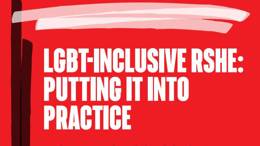The strengths and difficulties questionnaire (SDQ)
The strengths and difficulties questionnaire (SDQ) is a short behavioural screening questionnaire for children aged 3 to 16.

The questionnaire is used to assess children’s mental health, and can be completed by children and young people themselves, by their parents or by their teachers.
It can be used for various purposes, including clinical assessment, evaluation of outcomes, research and screening.
Using the strengths and difficulties questionnaire (SDQ)
There are currently three versions of the SDQ:
- a short form, which you can download on this page
- a longer form with an impact supplement (which assesses the impact of difficulties on the child’s life)
- a follow-up form.
You can access all versions of the SDQ on the Youthinmind website, where you can also find useful information on how to use the SDQ.
How it works
The 25 personality attributes in the SDQ are made up of 5 scales of 5 items each. The scales are:
- Emotional symptoms
- Conduct problems
- Hyperactivity/inattention
- Peer relationship problems
- Prosocial behaviour
The SDQ can be used for various purposes, including clinical assessment, evaluation of outcomes, research and screening.
Find out more on the Youthinmind website.
Share your feedback with us
How would you rate this resource? (1-5 from poor to excellent)
Thank you for your feedback
Your input helps us improve and maintain the quality of our resource hub.
Sorry there was an error
Please try again later.
Related resources
Mental health and wellbeing school policies
Various examples of schools' mental health and wellbeing policies, and actions to help you create...
View resource
10 ways to support school staff wellbeing
A report looking at how to best support staff wellbeing in schools. It focuses on self-care and...
View resource
Using measurement tools to understand pupils’ mental health needs
Learn how to use measurement tools and surveys to understand pupils’ wellbeing, so that you can give...
View resource
LGBT-inclusive RSHE: a guide for schools
A guide from Stonewall to help primary and secondary schools deliver LGBT-inclusive RSHE lessons.
View resource Author
Author
 Author
Author